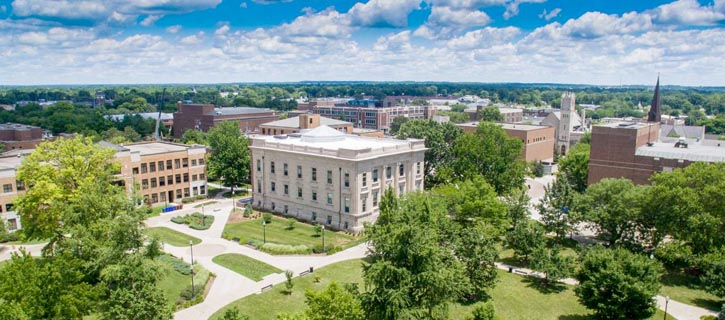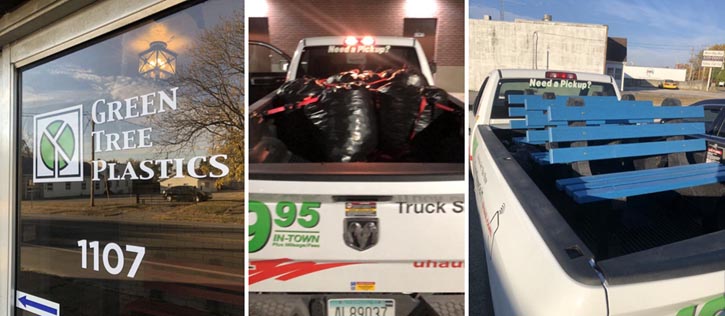A Campus Without Activists?

 “What’s the activist culture like on your campus?” A question that knocked me off my feet. I racked my mind for an answer and came up empty-handed. I could think of a couple of one-time events, fads of their time, but no true culture that thrives, or even survives, on my campus. That’s an interesting position for Indiana State to be in, considering the astounding amount of social and political upheaval that has characterized the country recently. And that’s not to say attempts haven’t been made; outside of campus, there is a youth climate activism organization called “earTHlings” which has historically engaged in weekly Fridays for Future demonstrations. EarTHlings’ members are in the middle school and high school age range and have made potent efforts to connect with the student population on campus, but the student body hasn’t been substantially receptive or supportive. My conclusion about the lack of activism– even when it’s right in the community, extending its hand– is that there’s not the grit, organizational skills, or numbers at my university for an activist culture to persist.
“What’s the activist culture like on your campus?” A question that knocked me off my feet. I racked my mind for an answer and came up empty-handed. I could think of a couple of one-time events, fads of their time, but no true culture that thrives, or even survives, on my campus. That’s an interesting position for Indiana State to be in, considering the astounding amount of social and political upheaval that has characterized the country recently. And that’s not to say attempts haven’t been made; outside of campus, there is a youth climate activism organization called “earTHlings” which has historically engaged in weekly Fridays for Future demonstrations. EarTHlings’ members are in the middle school and high school age range and have made potent efforts to connect with the student population on campus, but the student body hasn’t been substantially receptive or supportive. My conclusion about the lack of activism– even when it’s right in the community, extending its hand– is that there’s not the grit, organizational skills, or numbers at my university for an activist culture to persist.
I think it’s exactly the reason why my experience at college has been so singular and unique– and where my background perhaps diverges from a lot of other climate activists, writers, and scientists. To the political hierarchy of Indiana, which directly regulates my state school’s funding, through the state-appointed Board of Trustees, sustainability is deemed “new,” and “experimental.” Not worth the investment. I don’t say that with spite, it’s just reality. My college’s interface comes with its own specific set of challenges that push me and build my problem-solving skills day in, day out. The difficulty reminds me that sustainability work is different all around the world; each location/situation/region has its own problems and its own roadblocks– some places just have more infrastructure, policies, and framework to achieve climate solutions while other places have their work cut out for them. That haze of infinite possibility is what pulls me to keep advocating and excites me for our climate future. It’s the lack of a clearly climate-oriented student population, mixed with institutional obstacles, that’s helped me understand the importance of meeting people where they’re at.
That’s why as a Rachel Carson Fellow at Indiana State, I’m working to establish a green space that’s conceptualized and constructed sustainably. But I face the reality of getting something done, or getting nothing done– something I feel most days. Will I actually achieve something tangible? How can I alter the project so the space will actually get made? I’ve learned how necessary it is to make my understanding of the project fluid; I’ve conceptually deconstructed the space down to its most finite parts. Knowing their non-negotiable heartbeat, and their relation to each other, allows me to reconstruct them in a moment’s notice in order to meet the conversation at hand, meet the people at hand.
This notion arose during my September 30th meeting with the President’s Cabinet. I presented my full proposal for the green space, including design, budget, benefits, and action plan. The cabinet was receptive to some aspects of the space and others, not so much; it became apparent that at my institution, the best I can get may only be a small part of what I originally imagined– I need to work, advocate for, and dialogue about a product that maintains the spirit of the project, but is actually implementable.
 For example, one of the project pieces that I’m determined to uphold is the recycled benches which I just picked up from Green Tree Plastics in Evansville, Indiana. I dropped off 300 pounds of plastic bottle caps, matching the weight of three benches, picked up the benches, and took them back to a storage area to await installation. In the process of discussion and compromise, really knowing the pieces and their components is essential in order not lose the heart or quality of a project. I’m currently waiting on follow-up information from that meeting to move forward. At the end of the day, I’m going to celebrate what I do get done– and I will get something done– however divergent it may be from my original vision.
For example, one of the project pieces that I’m determined to uphold is the recycled benches which I just picked up from Green Tree Plastics in Evansville, Indiana. I dropped off 300 pounds of plastic bottle caps, matching the weight of three benches, picked up the benches, and took them back to a storage area to await installation. In the process of discussion and compromise, really knowing the pieces and their components is essential in order not lose the heart or quality of a project. I’m currently waiting on follow-up information from that meeting to move forward. At the end of the day, I’m going to celebrate what I do get done– and I will get something done– however divergent it may be from my original vision.
—RCC Fellow Daniel Garcia
 RCC Fellow Daniel Garcia is a junior at Indiana State University in Terre Haute, Indiana. He is pursuing degrees in Sustainability and English as well as minoring in German Language Studies. Daniel aims to combine his analytic and communicative English skills with his environmental passions to make an impact in the sustainability sector. His road to sustainability began in high school by engaging in community service events such as trash cleanups and community beautification projects; he is now active on campus in three sustainability student organizations and serves as a student employee for ISU’s Office of Sustainability where he leads the Eco Reps program.
RCC Fellow Daniel Garcia is a junior at Indiana State University in Terre Haute, Indiana. He is pursuing degrees in Sustainability and English as well as minoring in German Language Studies. Daniel aims to combine his analytic and communicative English skills with his environmental passions to make an impact in the sustainability sector. His road to sustainability began in high school by engaging in community service events such as trash cleanups and community beautification projects; he is now active on campus in three sustainability student organizations and serves as a student employee for ISU’s Office of Sustainability where he leads the Eco Reps program.






